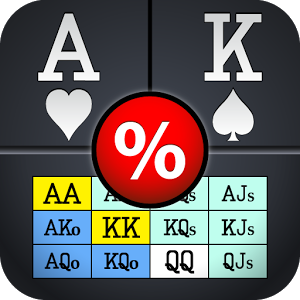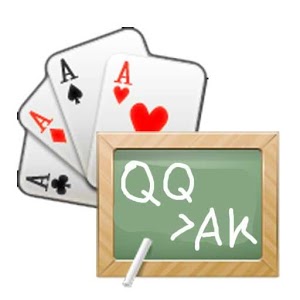
Pot Limit Omaha Strategy
As more and more people are developing their skills at Texas Holdem, those once easy games are getting much more difficult to beat. This is where Pot Limit Omaha comes in. PLO is a version of Holdem that is gaining popularity. Many players are looking for an alternative to Texas Holdem, either to find easier games or add more fun and variety to their poker experience.
Because PLO is relatively new to many, it’s considered much fishier than holdem these days and can provide the skilled player a bigger edge! Read our Pot Limit Omaha articles to learn more about the game, or visit our Omaha Hi-Lo section for articles on that version of Omaha.


Playing Against the Blinds in Pot-Limit Omaha
insights into the strategy of playing against the blinds in pot-limit Omaha, emphasizing the importance of continuation betting, the decision-making process when on the button, and the factors to consider when deciding to raise or limp in
Pot-Limit Omaha: The PokerTek Angle
he potential of pot-limit Omaha (PLO) games in Las Vegas, emphasizing the advantages of PokerTek's electronic poker tables in making PLO more accessible and affordable for players, and how these tables can cater to both new and existing poker players by offering smaller stakes games
PLO Practice-Hand Quiz No. 2
Raising preflop, the combo float, and value-betting the river It's a $1-$2 blinds game, $5 to bring in.
PLO Quiz
Playing with the initiative, making a combination-call, and value-betting the river - It's a five-handed 50¢-$1 pot-limit Omaha game online (six-max).
The Power of the Big Draw
the strength and strategic advantages of having big drawing hands in Omaha poker, particularly in deep-stack situations, explaining how these hands can dominate the game dynamics, allow for aggressive betting without fear of being priced out, and offer significant implied value when they hit
Structuring Sustainable Small-Stakes
guidelines on how to structure a sustainable small-stakes pot-limit Omaha (PLO) game, emphasizing the importance of setting a maximum buy-in, avoiding straddles, and ensuring that games are played with deep stacks to prevent short-stacking
PLO Quiz 3
A low SPR situation - Excerpt from Jeff’s book, Advanced Pot-Limit Omaha Volume II: LAG Play and The Short-Handed Workbook.
The Nut-Flush Draw
the strength and strategy of playing the nut-flush draw in pot-limit Omaha, illustrating its power against various hand combinations, even when up against strong hands like A-A-X-X
Pot-Limit Omaha Hand Quiz
Playing top two pair, and the nut-flush draw - Here are a couple of hands from a $2-$5 game at The Venetian in Las Vegas.
Positional Advantage in Pot-Limit Omaha
the inherent advantage of position in poker, emphasizing that the ambiguity of a bet from a late position, such as the button, can naturally deceive opponents, making them more likely to make mistakes, especially when they perceive the bet as a potential steal
Shorthanded Pot-Limit Omaha
common mistakes players make in shorthanded pot-limit Omaha games, such as defending blinds too liberally, making large preflop raises from out of position, and not being aggressive enough
Pot-Limit Omaha Hand Quiz 3
insights into post-flop strategies in Pot-Limit Omaha, focusing on the importance of understanding opponent behavior, the value of the positional advantage, and the effectiveness of bluff-raising when faced with potential air bets
Some Pot-Limit Omaha Hands
detailed strategy analysis of specific hands played in a pot-limit Omaha game at The Venetian in Las Vegas, illustrating various scenarios such as a delayed double-barrel bluff on a paired board, picking off a bluff by check-calling, and executing a delayed dry-ace bluff
PLO Quiz 2
pot-limit Omaha poker scenarios set in a game at Excalibur in Las Vegas, offering readers multiple-choice questions on the best course of action in each situation
Pot-Limit Omaha: Game Selection in Live Play
the challenges and considerations of selecting the right pot-limit Omaha (PLO) games in live settings, emphasizing the rapid scaling of stakes, the impact of uncapped buy-ins and the straddle option
Why Pot-Limit Omaha Games Must Get Smaller
the importance of structuring smaller-stakes pot-limit Omaha (PLO) games to ensure the game's growth, highlighting the challenges players face when overplaying their bankrolls and the need for sustainable PLO games that protect players from going broke
Variable-Ratio Reinforcement
psychological concept of variable-ratio reinforcement, explaining how it's used in gambling scenarios like slot machines to regulate player behavior, and hints at its application in pot-limit Omaha poker, particularly in relation to continuation-betting strategies
Pot-Limit Omaha: The Future is Near
the rising popularity of pot-limit Omaha (PLO) in the poker world, highlighting its potential to become the next big trend in poker due to its action-packed nature and the blurred line between "made hand" and "drawing hand."
Seat Selection in PLO
the importance of choosing the right seat in Pot-Limit Omaha poker, highlighting the strategic advantage of having tight players on one's left and aggressive players or those with bigger stacks on the right, to optimize control and play with positional advantage
The Reverse Float
the concept of "reverse float" in poker, which refers to floating from an out-of-position stance, highlighting its risks and offering guidelines for its execution
Fixing World Series of Poker Structures for PLO
discusses the disparities in starting stack depths between pot-limit Omaha (PLO) and no-limit hold'em (NLH) tournaments at the World Series of Poker, arguing that PLO tournaments should have deeper starting stacks to be comparable to their NLH counterparts
Quiz: Wrap, Bare Nut Straight Heads Up
scenario-based quiz on pot-limit Omaha poker strategy, focusing on decision-making in a heads-up game, with detailed explanations for each choice
Pot-Limit Omaha: The Bankroll Schedule
the importance of proper bankroll management in pot-limit Omaha (PLO), highlighting the game's inherent volatility and the need for a larger bankroll compared to no-limit hold'em, and provides a detailed bankroll schedule for various PLO games
Playing With the Initiative After the Flop in PLO
the dynamics of post-flop play in Pot-Limit Omaha when a player has taken the preflop initiative, emphasizing the importance of balancing continuation-betting with taking free cards based on the number of players in the pot and the trickiness of opponents
Quiz: Playing with the Initiative, Combination-Call, and Value-Betting River
Playing with the initiative, making a combination-call, and value-betting the river It's a five-handed 50¢-$1 pot-limit Omaha game online (six-max).
Pot-Limit Omaha Hand Quiz 2
detailed analysis of a specific pot-limit Omaha hand, emphasizing the importance of understanding when to take a free card
Following Through in PLO
the importance of maintaining betting momentum in pot-limit Omaha, suggesting that once players initiate a bet, they should continue to play as if they have the strongest hand until an opponent challenges them
Draw Equity vs Float Equity – Part II
nuances of float equity in poker, contrasting it with draw equity, and underscores how float equity, derived from fold equity and opponent information, can have significant value in certain game situations, but its effectiveness is highly contingent on the playing style of opponents
C-Bet Frequency in PLO
strategy of continuation betting in pot-limit Omaha (PLO) poker, emphasizing that the frequency of such bets should be tailored to the opponent's tendencies

